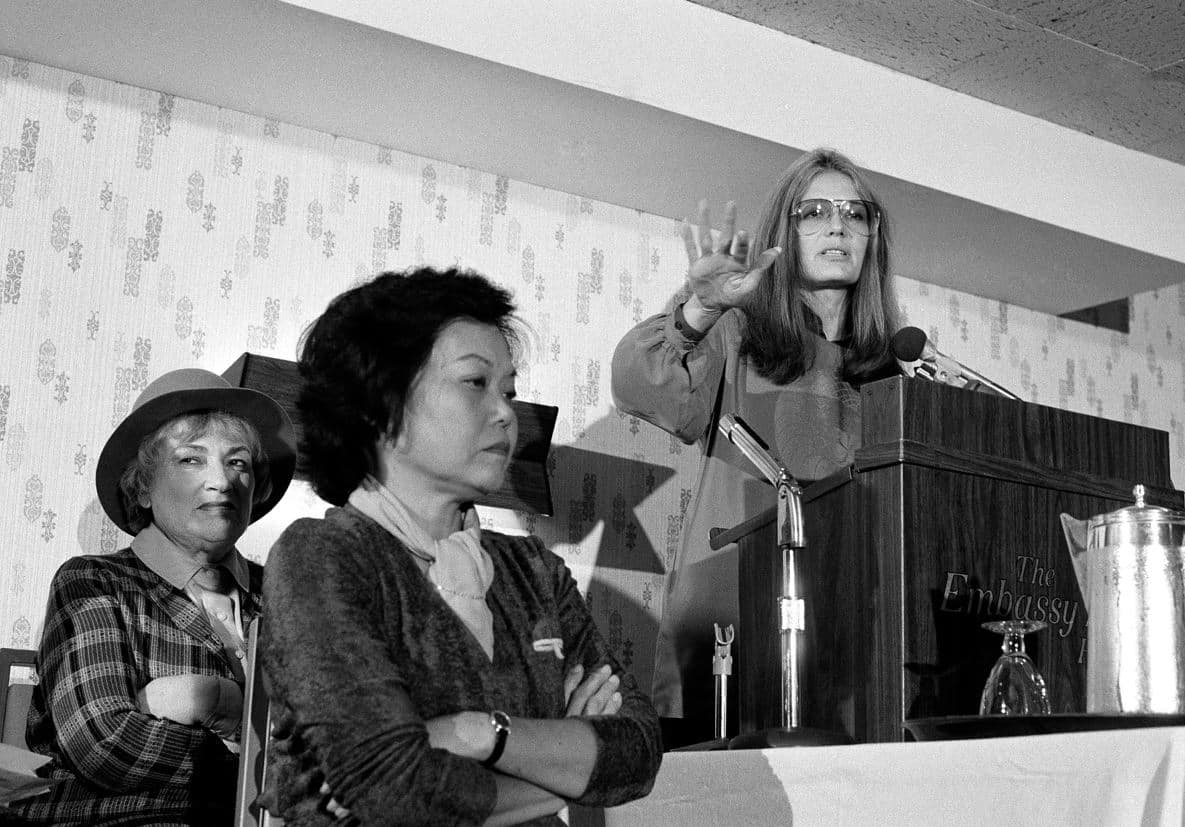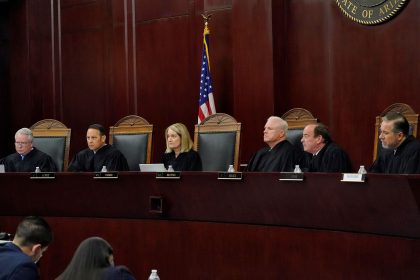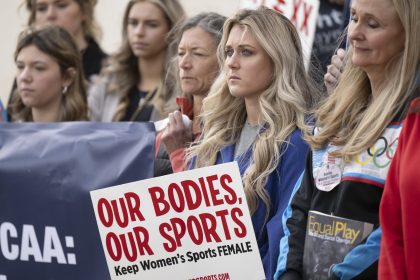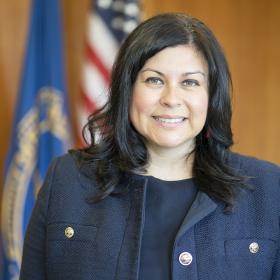Title IX’s Lasting Legacy at 50: How Its History Defines the Present

WASHINGTON — Title IX of the Education Amendments, the comprehensive federal law prohibiting sexual discrimination by any federally funded education program or activity, first became law on June 23, 1972, and its impact on the public education system still persists today.
The law came as a follow-up to the landmark civil rights and labor law known as the Civil Rights Act of 1964, which was tailored to curb discrimination based on “race, color, religion, sex, national origin, disability or age … ” in employment contexts, according to the National Archives. What the law didn’t cover, however, were instances of discrimination in educational settings that constituted the same infringements of civil rights.
This is what laid the foundation for then-Rep. Edith Green, D-Ore., and then-Sen. Birch Bayh, D-Ind., to lead the charge to ban discrimination on the basis of sex in education in 1972, culminating in the 37 words that would become enshrined in law as Title IX.
“No person in the United States shall, based on sex, be excluded from participation in, be denied the benefits of, or be subjected to discrimination under any education program or activity receiving federal financial assistance,” the text of Title IX reads.
Simply put, any institution that receives funding from the federal government is barred from making rules or instituting policies that favor one gender over the other. Those prohibitions apply across the board, even if the federal funding doesn’t directly correlate to the programs where gender inequities would take place.
These words have remained unchanged since Title IX’s codification when then-President Richard Nixon signed it into law. Their scope, however, has changed alongside society’s broader cultural developments, KC Johnson, American history professor at Brooklyn College, told The Well News.
“Title IX, in this respect, it’s a good example of how an individual legislator can make significant policy differences by him or herself,” Johnson said.
Because Title IX itself is such a short law that states a simple principle with no details included within its text, Johnson said it is viewed as a law of general applicability — meaning its interpretations could apply to a litany of issues. Although the societal evolution that would lead to a dramatic expansion of female enrollment in higher learning institutions in the United States was, to some degree, already taking hold by the time Title IX came around, the law was there to accelerate and reinforce those changes.
“There was no NCAA Women’s Basketball Tournament [during that time] — it was an entirely separate organization [known as] the [Association for Intercollegiate Athletics for Women],” Johnson told The Well News. “So, people can see one year there’s no NCAA Women’s Basketball Tournament but next year there is, and Title IX is what’s legally obligating that even though there are these broader cultural changes. It’s a concrete demonstration.”
Johnson said Title IX’s impact on the athletics realm is the clearest example of how specific policy applications spring forth from laws that might seemingly be unrelated. Title IX makes no specific references to collegiate athletics in its text, and yet, it has been the preeminent governing doctrine over those issues since its inception.
Before Title IX, there were essentially no mechanisms for students to adjudicate sexual discrimination cases with their school, and it took some time for its effects on the education system to be fully realized, he said. The lawsuits and policy initiatives shaped by Title IX started to pick up in the 1980s and 1990s and continue even today.
In fact, Title IX’s place in public law predates the establishment of the Department of Education which was once under the regulatory umbrella of the now-defunct Department of Health, Education and Welfare. Additionally, Johnson points out that Title IX’s institution also predates the Supreme Court’s Roe v. Wade decision in January 1973.
Title IX’s relatively non-controversial path to becoming public law — one without very much debate in committees or either chamber of Congress — might have been different after a high-profile case like Roe, he said.
“The kind of clear-cut political division that I think we now have in the post-Roe environment — in the [Dobbs v. Jackson] environment, if we want to modernize it — in that respect, doesn’t exist in 1972,” Johnson told The Well News. “And it is an interesting counterfactual to wonder, ‘Well, what might have happened if this law had been proposed in say ‘78 or ‘79 when gender issues had become much more politicized.’ But in ‘72, that’s really not the case.”
Legal frameworks of Title IX were interpreted by the Supreme Court in various cases throughout the years in lieu of any definitive congressional definitions. The Supreme Court issued decisions in the 1980s and 1990s clarifying sexual assault and harassment constituted sexual discrimination, like in Alexander v. Yale — which was the first use of Title IX in charges of sexual harassment against an educational institution.
Without additional legislative action on Title IX, much of its established institutional requirements have relied heavily on court interpretations. Consequently, Leah Reynolds, TNG consultant and former Title IX coordinator, told The Well News that whoever happens to be in charge can make changes to the interpretation or implementation of the law itself.
“Political ideology is in all of this, it’s just dependent upon who’s in the office and what their political thoughts are on these issues,” Reynolds said. “To clarify, the current regs make it very clear how schools should interpret applying the definitions to the prescribed procedures. What is uncertain is what Biden’s administration will propose next.”
That applies to issues such as what particular programs are offered in schools, what the facilities look like, scholarship opportunities and more — all of which are not explicitly mentioned in Title IX but have since come under its regulatory jurisdiction. When these issues then get examined under the lens of politics, they tend to invoke emotional responses from the stakeholders at the heart of the matter.
For instance, current Title IX guidance issued by the Biden administration includes protections for individuals on the basis of their gender identity or sexual orientation, based partly on the Supreme Court’s ruling in Bostock v. Clayton County. While these rules are not explicitly protected under Title IX, they are the law of the land for now unless further administrative changes take hold.
“All of that has to do with Title IX because [it] is about gender equity, and it doesn’t say gender equity only when it comes to sexual harassment or only when it comes to admissions or athletics,” Reynolds said. “We’re talking about gender equity within entire institution or school district’s operation.
“And so what folks need to understand is, you need to have a full assessment of your institution or of your district to ensure from the top down — from how we are letting folks in to how we are hiring them, promoting them, et cetera — that there isn’t any … discrimination on the basis of sex that is occurring.”
Reece can be reached at [email protected] and @ReeceNations























